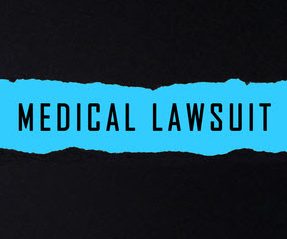
Medical malpractice lawsuits are much more complex than simple negligence lawsuits. Simple negligence lawsuits involve situations and scenarios in which an average person would be able to render a decision on liability. Take, for instance, a dog bite case. If your neighbor has an unruly dog that gets off the property and causes another person an injury, we can all basically understand what the situation is, how it happened, and make a determination of who is at fault and how much, if anything, they should pay for their negligence.
Medical malpractice lawsuits are different insofar as they require the use of expert witnesses to testify on behalf of the plaintiff or the defendant. This medical expert will be required give a medical opinion as to whether medical malpractice occurred.
Medical Negligence vs. Basic Negligence
Not all adverse medical incidents constitute medical malpractice and not all injuries that occur in a hospital constitute medical negligence.
First, medical negligence is different from basic negligence because it involves a medical decision. A recent Supreme Court decision clarified the difference between medical negligence and basic negligence. For instance, in some situations, if a patient slips and falls in a nursing home, that would constitute basic negligence and not medical negligence since a medical decision was not involved. Hospitals can be sued under a basic negligence theory. It’s not medical malpractice simply because it happened in a hospital.
Secondly, in order for a medical mistake to rise to medical malpractice, the doctor must have violated the standard of care which is recognized as acceptable and appropriate by reasonably prudent similar healthcare providers.
The Prevailing Standard of Care
The most pivotal element in a medical malpractice suit is that the doctor breached the prevailing standard of care in treating their patient. For instance, it isn’t uncommon for surgical errors to occur. However, only when a doctor fails to provide the level of care, skill or treatment that is appropriate given the circumstances will the mistake rise to potential medical malpractice. As a possible example, a doctor might operate on the wrong area of the body or leave a surgical instrument inside the body after the operation.
In other cases, the determination as to whether medical malpractice occurred is more complex. One notable example are post-surgical infection cases. Infection is always a risk with surgery. Therefore, it can be very difficult to prove if a post-surgical infection was a result of negligence, or simply a negative outcome that happens from time to time.
Do You Think You are They Victim of Medical Malpractice?
If you believe that a doctor’s negligence resulted in your injury, then you should contact the Tampa medical malpractice attorneys at Palmer | Lopez. We have recovered millions in damages for our clients and can help you recover damages for your injuries.
Resource:
insurancejournal.com/news/southeast/2018/06/06/491206.htm



